Research projects

ELEPHANT Capacity Building 2020-2023, EU funded project under Erasmus+ Capacity building framework
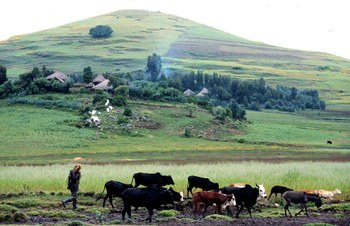
VETBOME-OH project
Funded by Emilia Romagna Region
The project is coordinated by Vet For Africa association in collaboration with the Departments oF Veterinary Medical Sciences and the Department of Medical specialties and experimental diagnostics. It represents the natural evolution of the VETBOME 2018 project, also funded by the Emilia Romagna Region. The project is aimed at ensuring quality educational support for veterinary training in the Tigray region of Ethiopia.
The present project, while reaffirming itself as a training initiative, has the ambition of strengthening the quality of under and post graduate training as well as life long educationin the field of One Health.The ethiopian institutions involved will increase their capacities to deal with and manage problems on the basis of the concept of "one health" in light of international veterinary legislation and Sustainable Development princiiples.
Because of the COVID situation, the project envisages a first phase of training activities at a distance, and then taking the activities directly to
directly to Mekellè in an epidemiologically more convenient period.
To refine the capacity building processes, the project repeats the experience of VETBOME 2018, with the exchange of researchers and
teachers for internship periods in Italy and Ethiopia, benefiting from the updated processes of the University of Bologna in the field of international mobility, adapted to the management of the situation.
The list of beneficiaries iincludes:
-undergraduate students of the veterinary medicine course;
-postgraduate students on postgraduate masters courses;
-Freelance veterinarians and veterinarians from the local food industry;
Health professionals (veterinarians, doctors and others) directly or indirectly involved in public health decision-making processes;
-public and private practitioners of humanitarian projects based on livestock interventions;
-doctors from CVS-Mekelle Univ.
All in the conviction that this wide range of participants can acquire the knowledge and skills necessary to promote sustainable development, including through education for sustainable lifestyle, human rights, gender equality, and the promotion of a peaceful and non-violent culture.
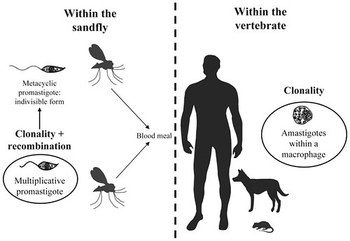
“Epidemiological study on vectors e animal species reservoir of leishmaniasis in endemic areas of the Emilia-Romagna region and preliminary investigation into parasitic circulation in sand flies of selected areas of Lombardy region”
Ricerca Corrente 2019, funded by Italian Ministry of Health
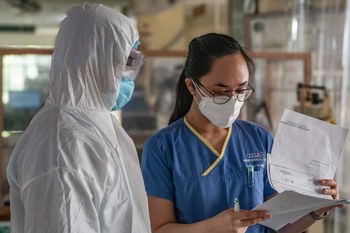
Long-term effects of the Sars Cov-2 pandemic on nursing and healthcare personnel
Coordinated by the Department of Clinical Psychology, Rijksuniversiteit Groningen, Netherlands
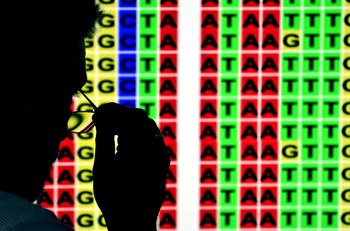
Genomics and Personalized Medicine for all though Artificial Intelligence in Haematological Diseases. Development of AI methods, Federated Learning approach and the data standardization methods
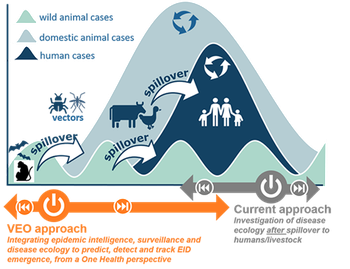
Versatile Emerging infectious disease Observatory (VEO)
A Versatile Emerging infectious disease Observatory (VEO) will be created for the generation and distribution of high-quality actionable information for evidence-based early warning, risk assessment and monitoring of emerging infectious diseases (EIDs) and antimicrobial resistance (AMR). This is an iterative process between data science and technology experts, disease experts, social scientists, and citizen scientists. The platform will support mining, sharing, integration, presentation and analysis of traditional and novel data sources, integrating both publicly available and confidential data.
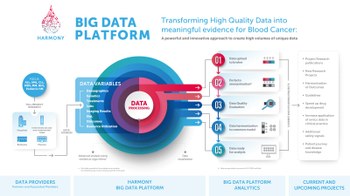
HARMONY/HARMONY PLUS Enabling Better and Faster Treatment for Patients with Hematologic Malignancies
HARMONY is a Public-Private Partnership, established in January 2017. Our mission is to unlock and spread valuable knowledge on hematologic malignancies (blood cancers) among a large number of stakeholders, with the goal to harness and mine Big Data to speed up the development of improved treatments for patients and more effective treatment strategies.

IMforFUTURE (Innovative Training in Methods for Future Data) is an innovative multidisciplinary and intersectoral research training programme which addresses current shortcomings in omics research. We aim to open the new research horizon in integration of genetics, glycomics, and epigenomics datasets into systems biology by developing innovative methods for high throughput omics and for integrative analysis of omics data. We focus on ageing, which is the biggest single risk factor for many diseases. By application of our novel methods to emerging datasets representing inflammation and immunology, IMforFUTURE will contribute to understanding of the underlying biological processes involved in diseases and ageing.
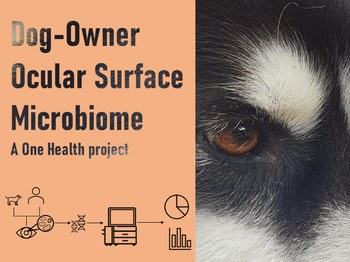
One Health relationships between dog and owner Ocular Surface Microbiome
This study focuses on the Ocular Surface Microbiome (OSM) of people and their dogs, and the relationships between these microbiomes. The interdisciplinary team working on the project is made up of researchers in biology, bioinformatics, veterinary medicine, medicine, and engineers.
The OSM is the collection of microorganisms (bacteria, viruses, fungi) and their genes living on the surface of the eye. It is a normal feature of the healthy eye and plays a protective role in it. To date, no study on the relationships between dog and owner OSM has been undertaken. However, a study has shown that people living in a household with a pet had greater similarities in their nasal and skin microbiomes to each other and to their dog compared to people living without pets, or to other pets. Other studies also suggest an influence of pets on promoting microbial exchange and the importance of bacteria-sharing dynamics within a household, not only between humans, but also animals.
The goal of this project is to determine if dogs and owners sharing a living environment and being in close contact could bring them to have similitudes in their OSM. The bacteria they exchange could have a positive impact on the health of both dogs and owners, as well as a negative impact through the sharing of antibiotic resistant bacteria. This project aims to approach the characterization of the OSM through a One Health lens by integrating human-animal interactions and bringing new insights on their relationships and the impacts on both human and animal health.